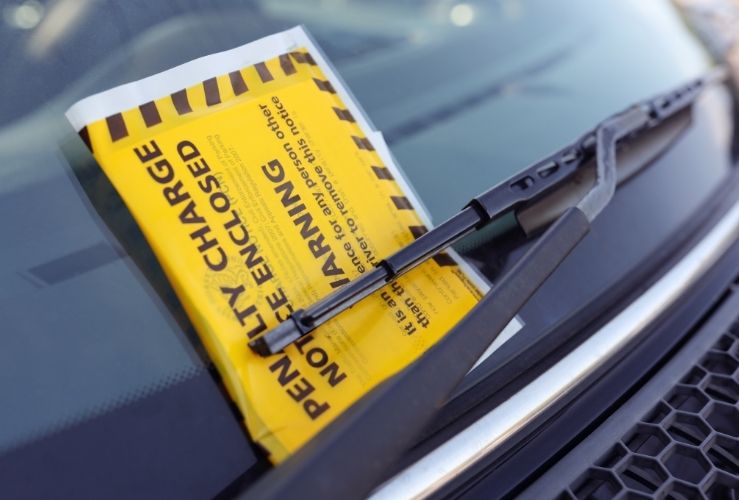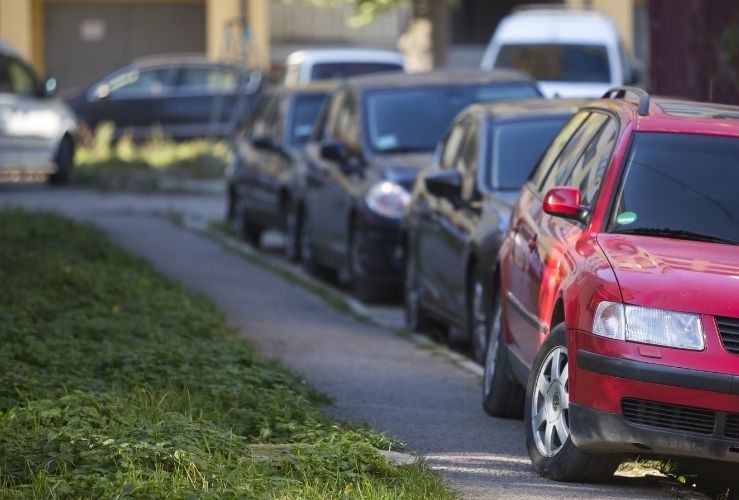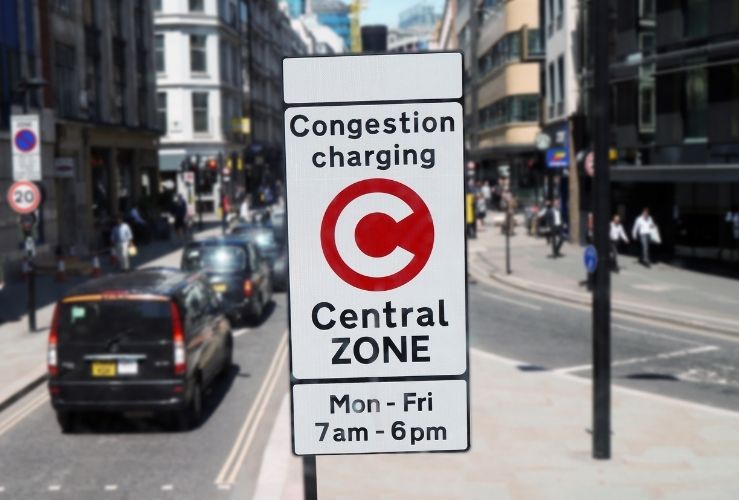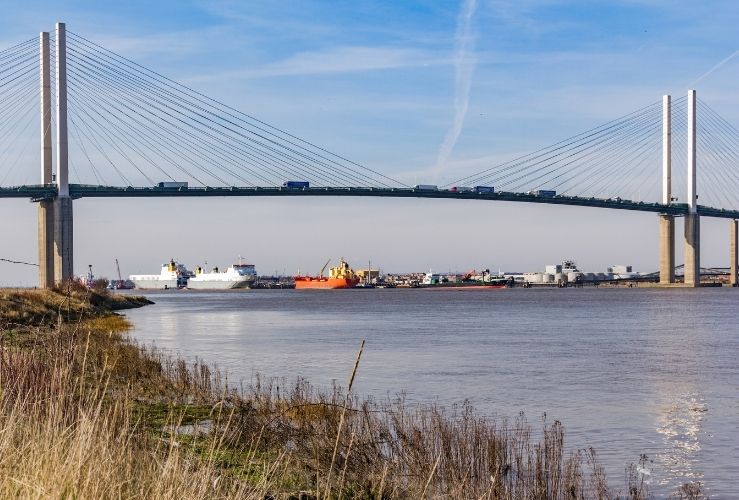Fines in Britain can be traced back to the Anglo Saxons, so it's no surprise they're commonly used to deal with traffic violations nationwide today.
While many motorists accept penalties as part and parcel of driving, others see them as revenue-generating mechanisms for the state. Either way, you can take steps to avoid getting one.

Parking tickets
Few motorists get through life without at least one parking ticket.
A freedom of information (FOI) request to 40 UK councils by Moneyshake revealed that drivers handed over £530m of fines to local authorities between 2015 and 2019. And of course that doesn't include fines collected by private parking firms.
Common reasons for parking tickets include parking on double yellow lines; parking on a pavement; not paying for a parking ticket; parking outside stated time limits; parking too close to a school or other government building; parking for too long (e.g. spending six hours in a supermarket car park); and parking overnight against the direction traffic (which is legal during the day).
You can avoid being handed a parking ticket by being aware of your surroundings - particularly applicable signage and double yellow lines. Note the day of the week/time of day as it pertains to parking rules.

Types of parking fines
- Fixed penalty notice (FPN) - issued by the police
- Penalty charge notice (PCN) - issued by local authority traffic warden
- Fine issued by private organisations for parking on private land
Fines range from £50 to £130. In most cases, penalties are halved if paid within 14 days.
Parking ticket appeals
There are many reasons why a parking ticket might have been issued incorrectly, along with many potential mitigating circumstances.
If you feel any of these apply to your circumstances, you may have grounds for an appeal. But you should consider whether or not it's worth the time and effort.
Incorrectly issued parking ticket - possible reasons:
- You didn't break any rules
- There was no - or insufficient - signage
- You weren't on private land (if issued by a private firm).
Mitigating circumstances might include:
- Incorrect date entered on the permit
- Parking bay was too small
- Car was stolen
- Car had broke down
- Travelling for urgent medical treatment
- Offence committed before car was purchased
- Diplomatic immunity (e.g. embassy officials of another country)
- Missing or incorrect details on PCN
- Vehicle was being leased
Before you remove the parking ticket:
Take photos of the scene around the car - the vehicle itself (check for damage), street signs, parking signage, the parking bay, nearby parked vehicles, etc.
You may also request a written statement from someone you were with, called a witness statement.
Appeals: Act swiftly
Since many penalties involve a 14 day early-payment period (21 days if the penalty was sent to you by post), it's important to act quickly.
Gather all the information and send it off.
Rejections
Many appeals will be rejected, whether the original fine was issued by a local council or a private firm.
You may then decide to appeal again.
If all your further appeals are rejected, you may decide to refuse to pay and let it go to court. Naturally, this step should only be taken if you think the ticket was issued incorrectly. This runs the risk of having to pay court fees and damaging your credit rating.
The Citizens Advice Bureau provides more details of the parking ticket appeals process.

Congestion charges
The London Congestion Charge was introduced to help reduce air pollution across the capital.
The £15-a-day charge applies from 7:00-22:00 every day except Christmas Day. There are exemptions and discounts available.
The Congestion Charge is policed by the capital's Automatic Number Plate Recognition system, which tracks vehicle number plates as they move around the city.
The penalty for failing to pay the congestion charge is £160, reduced to £80 if you pay within 14 days.
Driving in a clean air zone
In some cities there are also charges to pay for some commercial vehicles (e.g. coaches, HGVs, olders taxis) that do not meet minimum emissions standards. These do not apply to private vehicles.
Note that London has the Low Emission Zone (applicable to some commercial vehicles) and the Ultra Low Emission Zone (ULEZ - £12.50 per day) for some vehicles with higher emissions.
 Bridge crossing fines
Bridge crossing fines
There are 18 bridge crossings in the UK for which a charge applies, including the Dart River Crossing, the Humber Bridge and the Silver Jubilee Bridge.
Fines apply if you do not pay within the required time period - and vary depending on which bridge you use.
Fines are invariably halved if paid within a certain period, usually 14 days.
There are appeals processes if you feel you've been wrongly fined.
Examples of fines for not paying bridge crossing charges
With the Dart Crossing, you must pay the fee before midnight that day after your cross. Failure to pay will result in a £70 penalty, reduced to £35 if you pay within 14 days.
Humber Bridge - if you do not pay in advance, you'll be sent a fine plus a £15 administration charge. If unpaid within 31 days, a further £10 administration fee will be charged, as the case is handed to recovery agents.
Silver Jubilee Bridge - failure to pay by midnight of the following day of use will result in a £40 charge, plus the crossing fee. The penalty is reduced by £20 if paid within 14 days.
Tunnel fines
A fee also applies to some UK tunnels, including the Tyne Tunnels and Mersey Tunnels.
You need to pay the Tyne Tunnel 2 charge within 30 days, or face a £100 fine. The Mersey Tunnels penalty is £40, reduced to £20 if paid within 14 days.
There are also appeals processes if you feel you've been wrongly charged.
Automatic payment/having cash at the ready
If you use crossings or tunnels regularly, there are auto payment facilities to make the process more seamless, as well as monthly passes.
Buses and motorbikes are often free - check the applicable website for more information.
Otherwise, you should ensure you have a debit/credit card with you to pay as you cross - and ideally back-up cash.
Other more serious motoring fines
- Speeding - by far the most common motoring offence. £100 minimum fine and 3 penalty points.
- Miscellaneous offences - such as failure to provide identifying information to police.
- Driving while disqualified (up to £5,000)
- Driving while uninsured (6 penalty points and £300 fixed penalty, more if it goes to court)
Other more serious crimes such as dangerous, careless or drunk driving can carry prison sentences alongside penalty points.




